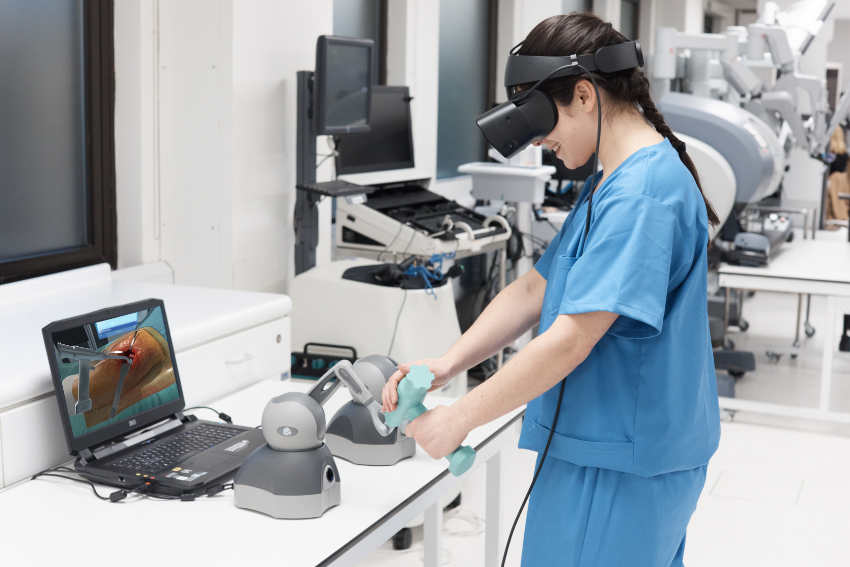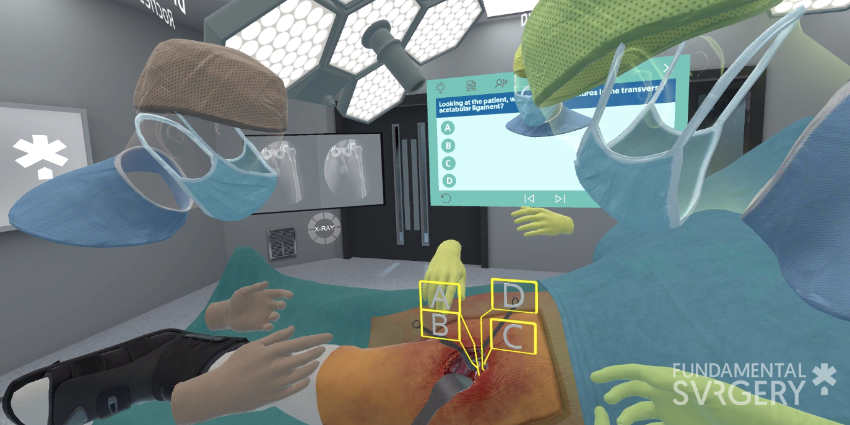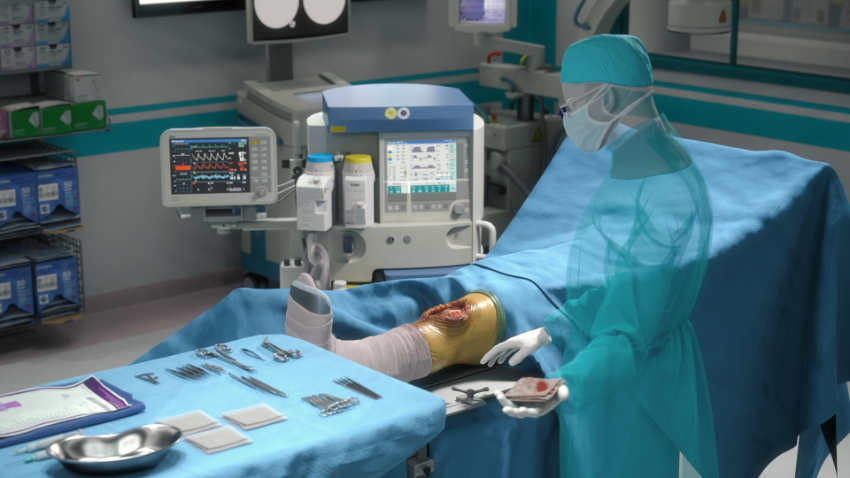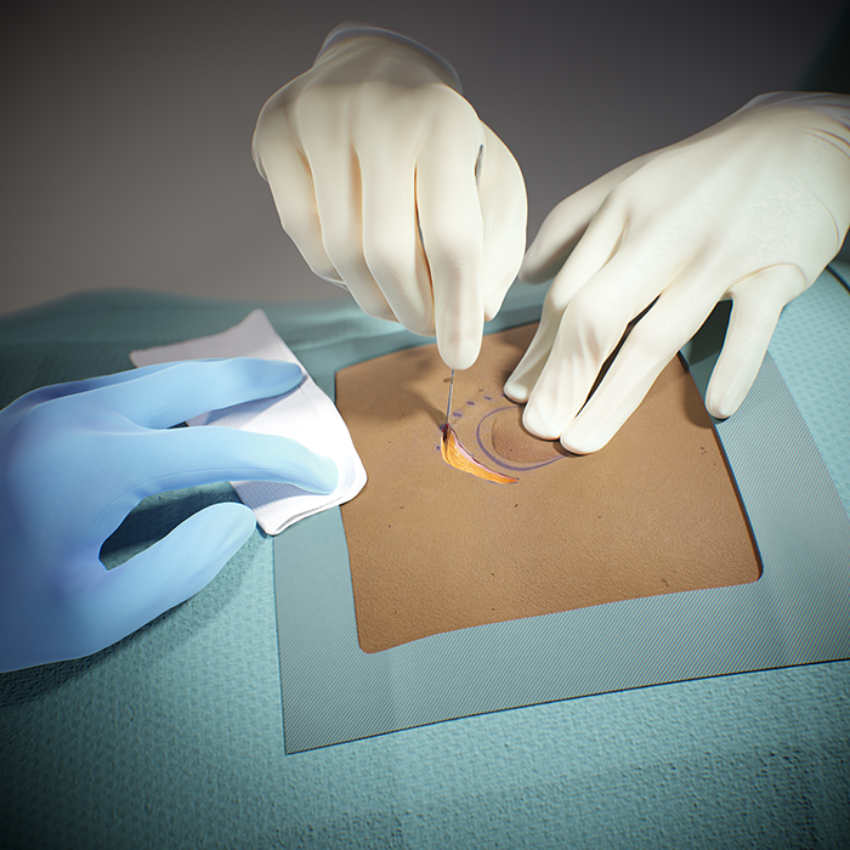FundamentalVR is a healthcare technology company with a mission to accelerate human capability via precision simulation and as a result, advance pre-human competence in surgery and additional clinical environments to improve patient outcomes.
Interview with Vicky Smalley, Chief Technology Officer at FundamentalVR.
A brief description of the company and its activities.
Vicky Smalley: As the global leader in immersive surgical VR training, FundamentalVR is accelerating human capability in surgery and medicine by using virtual technologies.
We are building a company that is helping to improve patient outcomes globally. Today we are seeing the rate of medical innovation soar, with Fundamental Surgery matching this ingenuity in training. Our virtual learning platform allows medical teams to train effectively in a risk-free environment so they can go on to deliver the best results possible when applying these novel products and procedures. Fundamental Surgery opens a world of possibilities, and we are very proud to collaborate with so many industry partners that want to revolutionize medical training with us.
At FundamentalVR, our core values are the guiding force behind our mission to accelerate human capability in surgery and medicine through virtual technologies. Our values inspire our team to take bold steps, innovate fearlessly, and continuously push the boundaries of surgical training. While our industry may evolve rapidly, our values remain constant, ensuring that we stay true to our mission and principles.
What are the main areas of activity of the company?
V.S: FundamentalVR is a global leader in immersive surgical training, dedicated to accelerating human capability in surgery and medicine through advanced virtual technologies to improve patient outcomes. The company spearheads the industry’s shift towards digital surgery by addressing the competency gap in training for intelligent operating rooms. Its purpose-built Fundamental Surgery platform allows for the full rehearsal of medical and surgical procedures, while the patented HapticVR™ technology mimics the physical touch, weight, resistance, and feedback of surgical actions, accurately simulating the sensations of soft tissue, bone textures, and muscle.

What’s the news about new products/services?
V.S: We have recently introduced Maia to our platform, an AI Tutor that represents a significant advancement in the field of XR and immersive surgical training. Maia is designed to revolutionize surgical education by integrating cutting-edge artificial intelligence to provide predictive insights, enhance surgical proficiency, and speed up skill acquisition.
Maia’s unique value lies in her ability to track and analyze user gestures using sophisticated AI algorithms. This capability offers invaluable data to medical device companies and educators, aiding in making informed decisions regarding product design, training efficacy, and user skill levels.
What truly sets Maia apart is its real-time, data-driven approach to predicting surgical behavior. This allows for immediate intervention, ensuring safer and more effective training environments. Its machine learning models are capable of calculating users’ risk levels on the fly, providing proactive guidance and adaptive learning support. This not only fosters user engagement and continuous improvement but also promotes learner autonomy, leading to a more effective and engaging learning experience overall.
What are the ranges of products/services?
V.S: FundamentalVR offers a wide range of customizable, flexible, and cost-effective VR training solutions across various medical specializations:
Ophthalmology: Our VR training solutions assist industry leaders in accelerating the global rollout of products and procedures by providing customizable and collaborative training environments.

Urology: Partnering with industry leaders like Teleflex, we create advanced training simulations for new urological products and procedures, ensuring practitioners are well-prepared for clinical application.
Orthopedics: We deliver high-quality simulations for orthopedic surgeries, including anterior and posterior total hip replacements and knee arthroplasty, aiding in skill development and procedural proficiency.
Robotics: Our platform supports the rollout of robotic medical devices, exemplified by our collaboration with CMR Surgical to develop Versius VR, providing robust and adaptive training solutions.
Endovascular: Our VR training platform enables comprehensive simulations of endovascular procedures, including immersive CathLab and OR environments for diagnostic imaging, evaluation, and therapeutic interventions.
Spine: We offer detailed simulations for spine surgeries, from facetectomy and spinal pedicle screw placement to complex neuro procedures, all enhanced with high-fidelity graphics and haptic feedback to accelerate skill acquisition.

What can you tell us about market trends?
V.S: As the number of surgical procedures continues to rise globally, there is an increasing emphasis on patient safety and the need for advanced training tools that offer realistic practice environments without risking patient health. VR technology, once primarily the realm of tech enthusiasts and early adopters, is now gaining widespread acceptance, thanks in part to hardware innovations from companies like Apple and Meta with products like the Apple Vision Pro and Quest 3. These untethered headsets provide a simpler setup process without the need for any other hardware, making them much easier to use for those new to the medium. They also have high resolution displays along with high quality pass-through, enabling the user to clearly see their external environment when needed while wearing a headset. These features are particularly beneficial for new users as it helps reduce the disconnect between the virtual and real worlds.
The advances in simulation training are not only improving patient outcomes but also demonstrating significant cost reductions. Healthcare providers who fail to embrace these cutting-edge solutions risk falling behind in a rapidly evolving field.
What estimations do you have for 2024?
V.S: Haptic force feedback technology continues to advance, driven by companies like Haply Robotics and 3D Systems. These innovations allow surgeons and other medical professionals to experience realistic tactile sensations, including textures, resistance, and forces encountered during actual procedures. The ongoing improvements in haptic feedback are enhancing the realism of simulation training, making it an invaluable tool for developing surgical skills. Notably, the integration of haptic force feedback into robotic surgery systems, such as the Da Vinci Surgical System, underscores the critical role of this technology in modern surgical training and practice.

As surgical equipment becomes more complex, encompassing advanced monitoring and imaging technologies as well as sophisticated implanted devices, the challenge of training healthcare professionals is growing for med tech companies. A highly effective strategy to address this challenge is the use of digital twins, virtual replicas of real-world devices and systems. This approach ranges from a surface level simulation of user interfaces to integrating the actual software used by these devices into virtual operating rooms or cath labs. By doing so, digital twins help flatten learning curves and significantly reduce the risk of errors in real-world applications, enhancing both safety and efficacy in patient care.
Artificial intelligence is currently the fastest-growing area in technology, and its integration with spatial computing is pushing the boundaries of what can be achieved. At the forefront of this innovation, we are developing an embodied agent – a virtual tutor capable of providing personalized feedback precisely when it is most effective. This agent can assess performance, suggest strategies for improvement and create adaptive learning paths tailored to each user’s needs. The rapid advancements in this technology are opening up new possibilities, and FundamentalVR is strategically positioned to leverage these developments to enhance surgical training and education.
Photo credits: Courtesy of FundamentalVR

